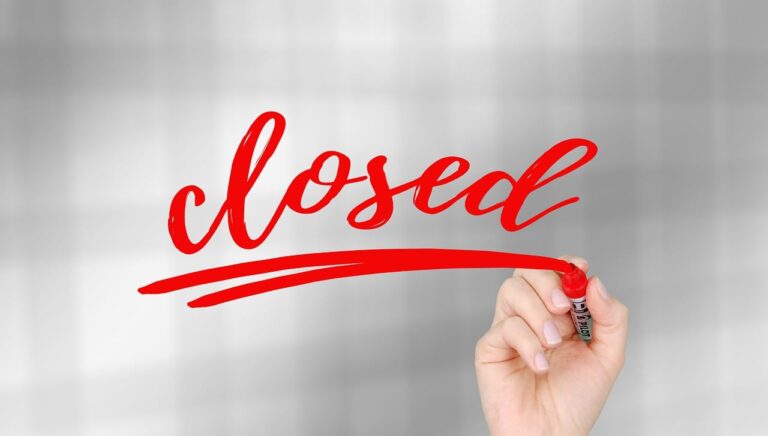The Capitol Report, produced by WisPolitics.com — a nonpartisan, Madison-based news service that specializes in coverage of government and politics — provides a weekly analysis of issues being
debated in Wisconsin state government. It is underwritten by the WNA and produced exclusively for its members. WisPolitics President Jeff Mayers is a former editor and reporter for the Associated Press and a former political writer for the Wisconsin State Journal. The WisPolitics logo can be downloaded here.
Editor’s note: This column is provided to Wisconsin Newspaper Association members by WisPolitics.com. Proper attribution to WisPolitics.com is appreciated. Also, please publish the tagline that is included at the end of the column.
‘Dark store,’ school funding and marijuana referendums on November ballots
Voters in 23 counties, cities and villages across the state are poised to vote next month on referendums urging the Legislature to address the so-called “dark store” loophole.
The ballots come after lawmakers earlier this session debated legislation to prevent stores from basing their property value on vacant properties or “dark stores,” which have lower property value and can be taxed less. Two bills on the issue each failed to clear the Legislature, including a last-ditch effort in the Assembly to amend a bill to include language on the topic.
The advisory referendums — from two villages, four cities and 17 counties across the state — are heading to voters as the League of Wisconsin Municipalities, Wisconsin Counties Association and Wisconsin Towns Association continue their campaign against the so-called loophole. The campaign includes a “call to action” component for local governments to pass resolutions this fall.
LWM Executive Director Jerry Deschane noted West Allis voters previously approved a dark store referendum question in the August primary. He said the number of local governments with a mention of it on their ballots shows they’re frustrated with the issue.
“I think that expresses the level of frustration that cities, counties and villages across the state have with this issue,” he said. “They see it growing and they want to draw attention to it and bring it to the Legislature’s attention.”
But the questions are just a few of the more than 200 that are set to appear on ballots Nov. 6, according to a spreadsheet compiled by the state Elections Commission.
Eighty-two of those are being posed by school districts seeking some $1.4 billion. That includes 11 to build new schools, 24 for safety and security improvements, 40 for site and building improvements, 28 for maintaining facilities and 12 for maintaining current educational program levels, per a Wisconsin Policy Forum report this week.
Meanwhile, voters in 16 counties and two cities will be asked about the state’s marijuana laws. Ten counties have referendums on medical use, while four have referendums on recreational use. Two more counties have multi-part questions.
The city of Waukesha’s referendum has just one question: “Should cannabis be legalized in Wisconsin for medicinal purposes, and regulated in the same manner as other prescription drugs?”
By comparison, the city of Racine’s cannabis question is split into several parts. One asks if marijuana should be decriminalized, another asks if medical use should be allowed, and a third asks if it should be legalized for adult recreational use. Voters in Racine will also be asked if cannabis sales should be taxed and the revenue be used for public education, health care and infrastructure in the state.
Only two counties, Racine and Eau Claire, have multi-part referendums on marijuana. The other counties with single questions include Milwaukee, Rock, Dane, Sauk, Brown, La Crosse, Marathon, Portage, Clark, Langlade, Marquette, Forest, Kenosha and Lincoln.
This November, more Wisconsinites than ever before will weigh in on marijuana laws, as more than half of the state’s residents live in counties with cannabis referendums on the ballot. That’s according to a blog post from Gary Storck, a lobbyist and activist for marijuana legalization in Wisconsin.
Andrew Hysell, a consultant for the Wisconsin Justice Initiative, says the pot advocacy group is focused on eliminating “unnecessary” prosecutions and incarcerations for the drug. Its eventual goal is full legalization of marijuana.
“These referendums will give some really good info to the governor and Legislature about what people want,” Hysell said. “When constituents say they want something or don’t want something, their elected officials will represent their interest … at least that’s how it’s supposed to work.”
In other notable referendums:
» Voters in a handful of areas around state are being asked to weigh in on amending the U.S. Constitution to restrict campaign spending and political contributions from unions, corporations and others.
The question — with some variations — will be on ballots in Jackson County, Wood County, Sauk County, Westfield, Weston, Readstown, Kickapoo, Vermont and Rib Mountain.
In Sauk and Wood counties and Westfield, Weston, Readstown, Kickapoo and Vermont, voters will also be asked whether they agree that money isn’t speech “and therefore regulating political contributions and spending is not equivalent to limiting speech.”
» Four counties are planning to ask voters if they want the Legislature to spearhead a “nonpartisan procedure” for legislative and congressional redistricting.
They are western Eau Claire County, south-central Sauk County, northern Lincoln County and northeastern Winnebago County.
» Oneida County is looking to gauge support for the leasing of county-owned lands in the town of Lynne for metallic mine exploration.
The question comes after Gov. Scott Walker signed into law a bill to end the so-called “moratorium” on sulfide mining earlier this session. The previous law had required companies seeking a sulfide mining permit to prove they operated for 10 years and were closed for 10 years without polluting groundwater or surface water.
A county spokesman said the referendum follows the county’s revising of its metallic mining ordinance earlier this year. He noted the town of Lynne has a copper-zinc deposit on county property, and supervisors were interested in gauging support for the possibility of establishing a metallic mine there.
» Voters in La Crosse County will be asked if they would support a new 0.5 percent tax on tourism-related goods and services to balance out spending on roads and bridges. It’s noted in the question that this tax would raise an estimated $6.6 million per year, of which $1.6 million would be shared with cities, villages and towns for transportation needs. The town of Minocqua has a similar question on its ballots.
» And Green Bay is asking voters whether a 12-year consecutive term limit should be imposed for mayor, alders and municipal court judges.
See the Elections Commission spreadsheet here.
The Capitol Report is written by editorial staff at WisPolitics.com, a nonpartisan, Madison-based news service that specializes in coverage of government and politics, and is distributed for publication by members of the Wisconsin Newspaper Association.
Copyright © WisPolitics.com



